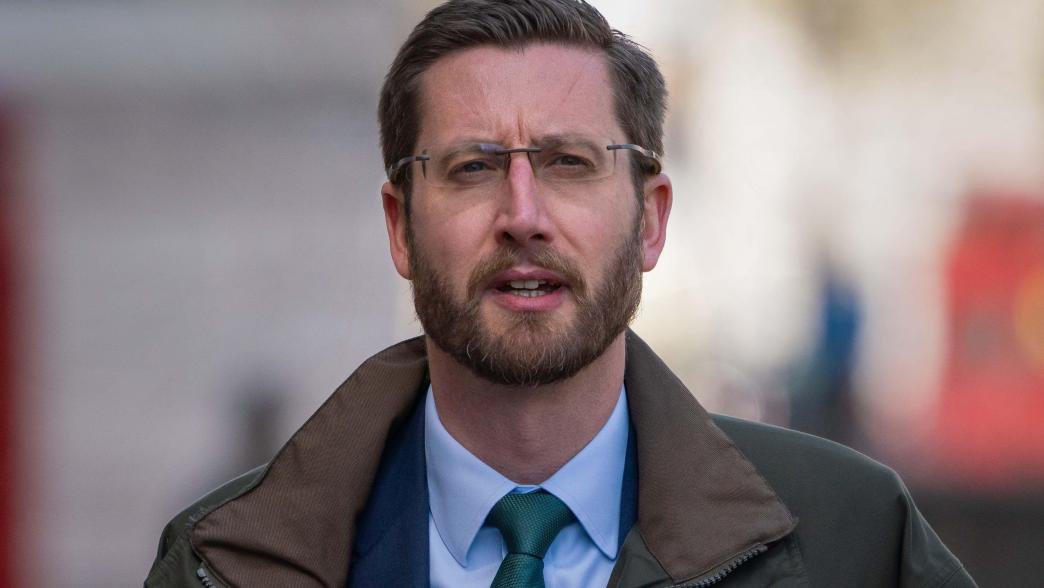Simon Case belatedly finds his voice to defend the civil service
Simon Case is right to speak out against ministers who describe the civil service as the 'blob'

The cabinet secretary said calling the civil service a ‘blob’ was “self-defeating cowardice”. It is a welcome realisation that he must be a leader as well as a fixer, says Alex Thomas
When ministers and MPs criticise the civil service, few officials are able to respond in public. And to growing frustration, the official who does have a public platform – cabinet secretary Simon Case – has largely stayed silent or sidestepped opportunities to speak out. Not any more. At an evidence session with Parliament’s Public Administration and Constitutional Affairs Committee, Case didn’t hold back.
When MPs asked about ministers criticising the civil service as a ‘blob’ Case spoke plainly. He did not agree with “a characterisation that is insulting, dehumanising and totally unacceptable”. He suggested that such language “undoubtedly undermined the good functioning of government”. The cabinet secretary was right to speak out.
The ‘blob’ slur is about picking a fight not winning an argument
The civil service, as we repeatedly argue, has much to do to improve. Skills and expertise gaps, excessive staff churn in some areas, grade inflation and risk-aversion are all serious problems for serious reformers. But the ‘blob’ accusation is a marker that, in the words of Succession’s Logan Roy “you are not serious people”.
There is cheap applause to be won by finding and attacking an amorphous enemy. But it is no way of governing. As well as being deliberately insulting the term implies cohesion where there is none. When enemies range from civil servants to nurses, judges to teachers, academics to Islington residents, blob accusers are picking a fight, not making an argument.
To improve the way government works means reckoning with incentives that shape people and organisations and the decisions they make. Reforms must be specific and deal with issues that need addressing, not based on a political attack designed to avoid taking responsibility.
Standing up for the civil service is welcome but too late
We have to recognise the constraints under which Case, or any cabinet secretary, operates. He does not have the freedom to simply speak his mind. There is a tension between the behind-the-scenes job of cabinet secretary giving private advice and helping to broker compromises on the most difficult government decisions, and the head of the civil service, leading an organisation of half a million people. We have argued that the cabinet secretary needs more formal authority to lead the civil service, but reconciling the demands of the job will always require political nous and fine judgement. Parliamentary committee evidence sessions are one of the few arenas in which the top civil servant can – as Case did this week – put down a careful public marker.
Frankness from Case is welcome, but it would have meant more if he had done it sooner. No doubt he has been stung by criticism of his failure to defend the civil service more forcefully in the past, over partygate and many other recent travails. As the chaotic and insecure Johnson premiership recedes his task becomes easier, as he himself acknowledged. But the test of leadership is being able to take a stand when the going is tough.
The cabinet secretary’s job should not be split
Some argue that the tensions between cabinet secretary and head of the civil service are irreconcilable and the job should be broken up. That happened most recently when Jeremy Heywood and Bob Kerslake – both sadly now deceased – split the roles from 2012 to 2014.
There is a superficial logic to separation. The functions are different and at times in tension. But it would be a fundamental error to do so again. Being the head of the permanent bureaucracy means the cabinet secretary has more executive authority when advising the prime minister on what will or will not work, be legal or cost effective. And when important but – to a prime minister – second order issues around government effectiveness arise, the cabinet secretary as head of the civil service has the influence to take the prime minister’s views and to implement reform. If a head of the civil service sought a hearing with a prime minister on civil service issues they would be marginalised straight away. A strong and effective cabinet secretary, on the other hand, can use both sides of their role to mutually reinforce each other.
The government’s top civil servant must set direction while taking orders, lead a massive institution but from behind the scenes, be a lodestar of integrity and impartiality while at times operating in an environment of political chaos. There are many occasions when the job demands discretion and even a level of public evasion. But there are also times when a little honest speaking goes a long way and enhances the authority of the occupant while boosting morale when a boost is seriously needed. For now, Case seems to have learned that lesson – he will hope it is not too late.
- Topic
- Civil service
- Keywords
- Civil servants
- Political party
- Conservative
- Position
- Cabinet secretary
- Administration
- Sunak government
- Public figures
- Simon Case Boris Johnson Rishi Sunak
- Publisher
- Institute for Government